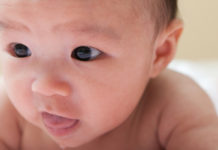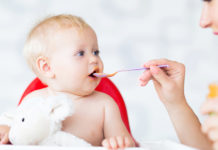
Parents of babies born with heart disease should be offered specialised cardiac genetic counselling to reduce risk, prevent disease and improve treatment, according to world-first research led by UNSW, UTS and the Sydney Children’s Hospitals Network.
In a study of 100 parents of children with congenital heart disease who had surgery between 2000 and 2009, almost all parents showed a clear preference for a single genetics appointment with both a specialised clinical geneticist and a genetic counsellor, offered as soon as possible after diagnosis.
Lead author and UNSW Associate Professor of Medical Psychology Nadine Kasparian said the study published in Genetics in Medicine, a peer-reviewed journal of the American College of Medical Genetics and Genomics, showed that meeting a specialised clinical geneticist and a cardiac genetic counsellor, with support from online health resources, was a high priority for parents of children with heart disease.
“This study highlights an important gap between what parents feel they need and what is currently available,” Associate Professor Kasparian said.
“Specialised paediatric cardiac genetics services can provide information about genetic and other risk factors associated with a child’s heart condition, as well as offer emotional support to alleviate the feelings of guilt, fear and sadness parents so often feel.”
Every day in Australia, eight babies are born with congenital heart disease, which includes malformations of the heart, heart valves or major blood vessels. Worldwide there are about 1.35 million babies diagnosed with congenital heart disease each year. It is a leading cause of infant death and one of the most common reasons babies are admitted to intensive care.
After a diagnosis of congenital heart disease, paediatric cardiologists usually discuss the genetic implications with parents, however, referrals to a cardiac genetics service are less common. Funding of additional resources would allow more referrals to properly structured congenital heart genetics clinics.
Associate Professor Kasparian said the great majority of parents of babies with congenital heart disease would like to be offered this service, with 93% of parents in the study indicating they would attend an appointment with a specialised clinical geneticist and a counsellor, if offered within two weeks of referral.
We may not always be able to reach the ideal, but this gives us a clear goal to aim for.
“To plan services, we need to understand the needs of the people the service is supposed to help,” said co-author and clinical geneticist UNSW Conjoint Professor Edwin Kirk. “In this study, we heard from parents about their ideal service. We may not always be able to reach the ideal, but this gives us a clear goal to aim for.”
Associate Professor Kasparian, who is also a recipient of the Heart Foundation’s Future Leader Fellowship award, said: “The genetics landscape is rapidly evolving, and we are learning more about the genetics of childhood heart disease every day. This study shows the need for greater resources and new models of care. There are important discoveries being made at a molecular level and our services need to be ready for when these discoveries are translated into clinical care.”
More resources, funding and workforce training were needed before the model of care preferred by parents could be implemented, Associate Professor Kasparian said.
The study came after Health Minister Greg Hunt announced on February 14 the first National Action Plan to discover treatments for thousands of Australians affected by childhood heart disease.
“It will be important that we extend that action to the delivery of services that better meet the needs of parents of children with heart disease,” Associate Professor Kasparian said.
(Source: UNSW Sydney)









